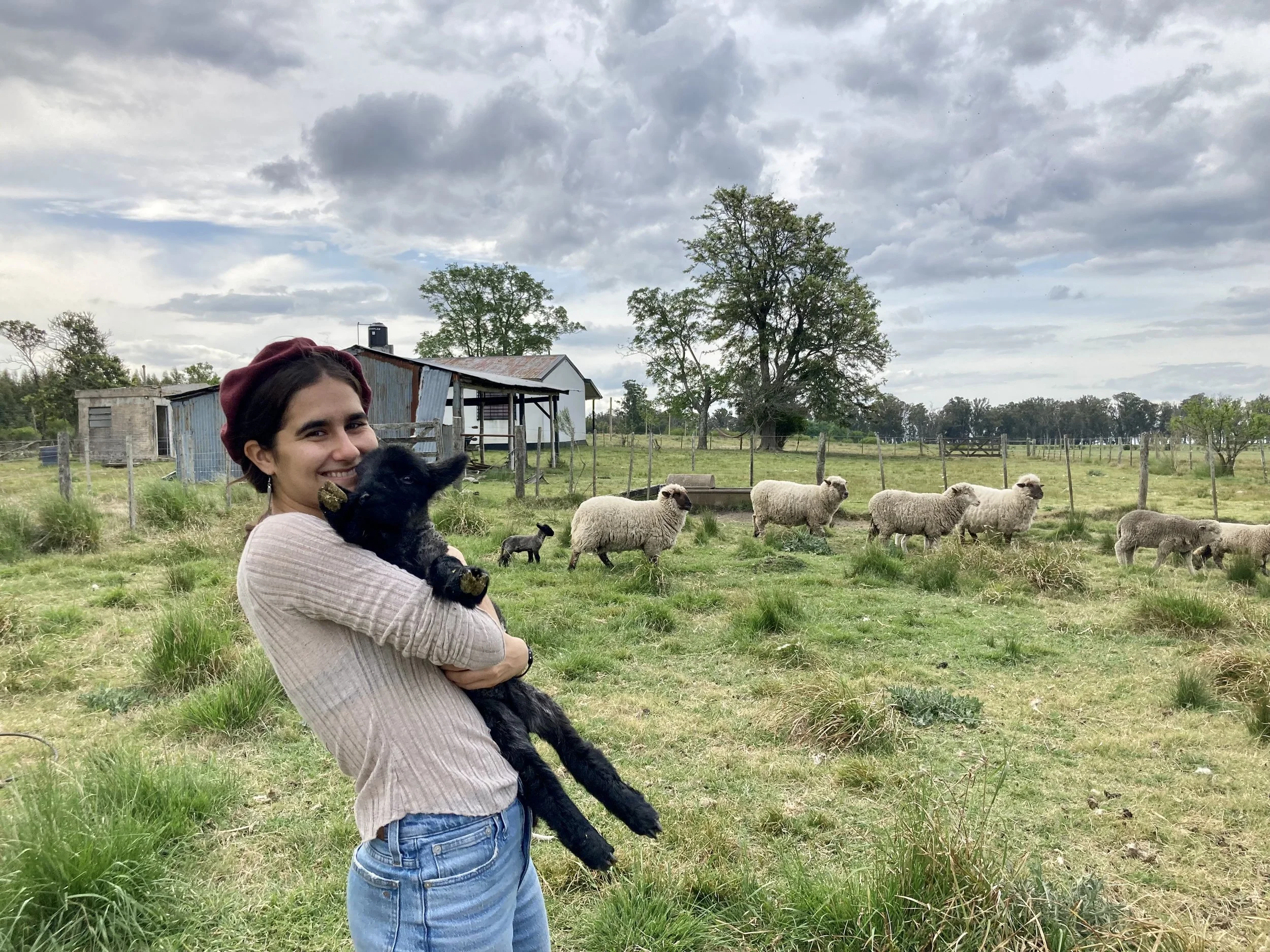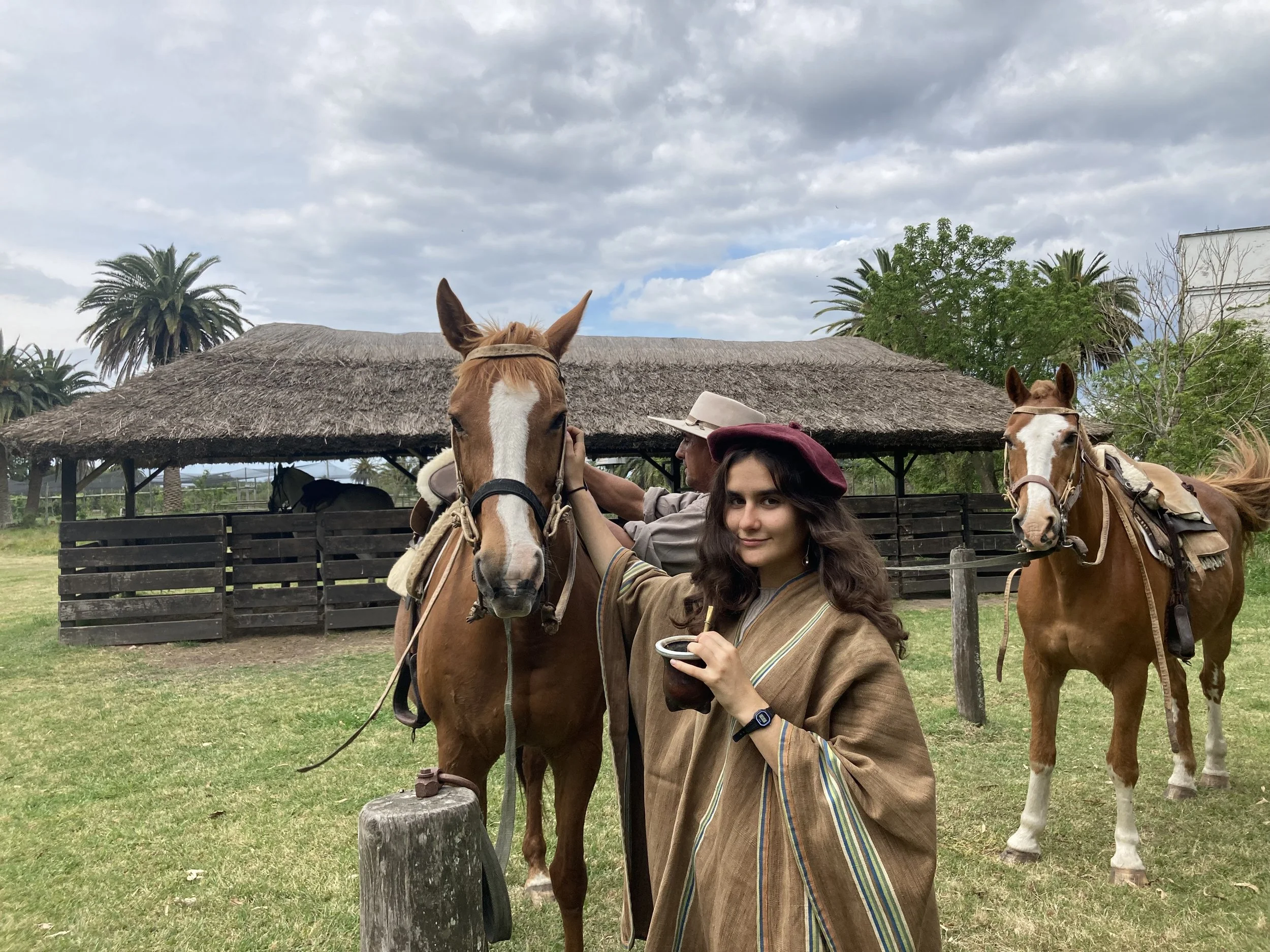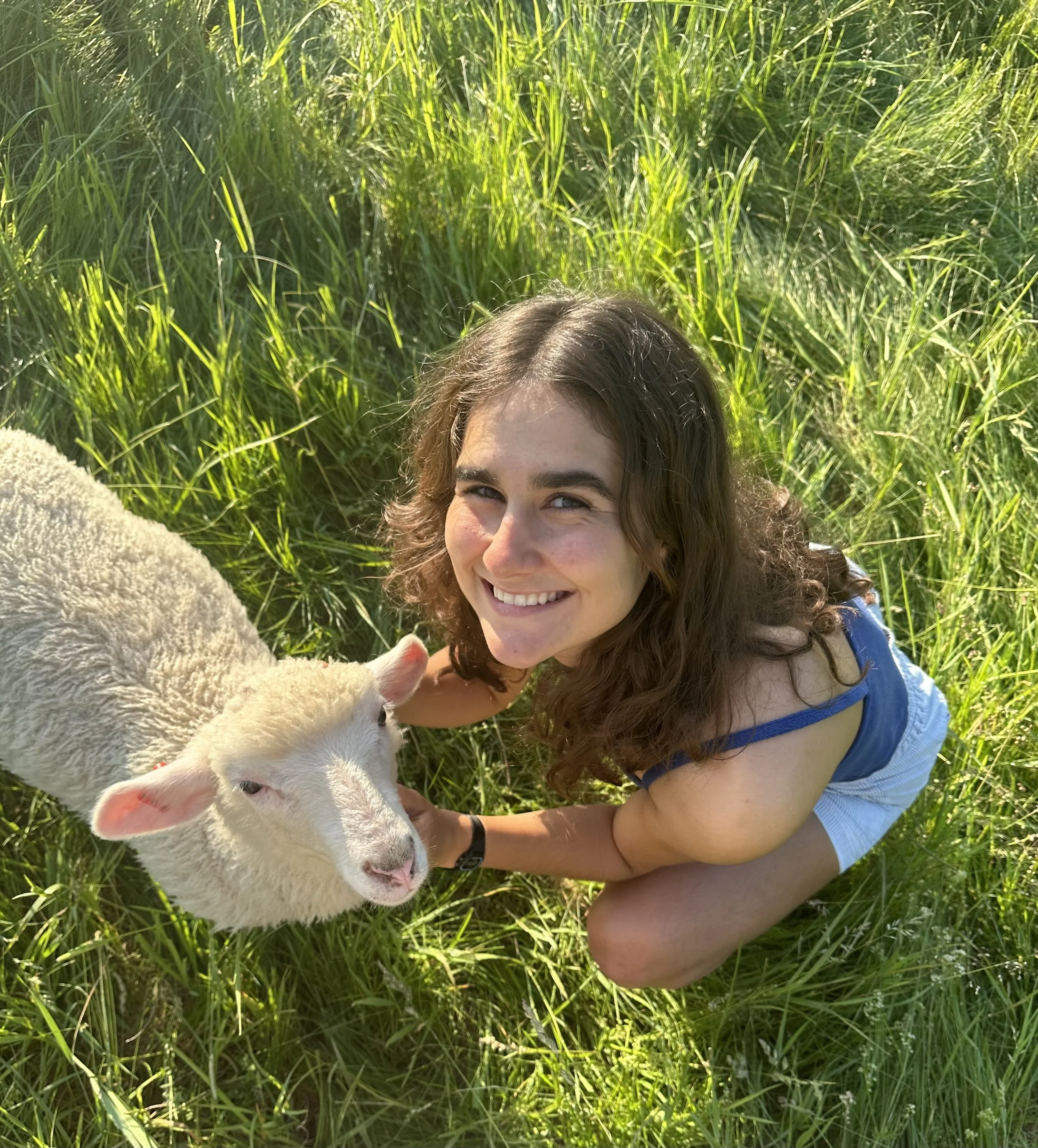Isabel Tribe F’20: Adventuring and Advocacy
Brown University student, Isabel Tribe f’20, discusses her evolution in advocacy work, the importance of exploring the world in new ways and how her time at TMS has impacted her along the way.
Isabel Tribe f’20 returned to TMS the summer of 2023 as a "pivotal, key, essential" member of Farm Crew. She is currently a student at Brown University and plans to study – though "obviously, who knows" – Comparative Literature in English and Spanish and Environmental Studies following a gap year spent adventuring and doing environmental restoration work in Latin America. Recently, Isabel sat down for a conversation with Madeleine Ford f’23.
Written by Madeleine Ford f’23
“That’s a really great thing about the Mountain School, that it comes back into your life in really unexpected ways.”
Isabel has always been invested in social issues. As a student at the High School of American Studies at Lehman College in New York City, "the little neighbor of Bronx Science," she and friend Charlotte Hampton founded Teens for Press Freedom, an internationally recognized organization that advocates for media literacy among young people. "I just felt like we needed to be talking about this more," she said. "Something needed to be vocalized here." In the midst of the pandemic, the two friends dedicated themselves to the “germination” of their project — things were starting to come together until Isabel went away to the Mountain School in the fall of 2020.
“I hadn’t seen anyone I knew, because I was living in Indiana with my grandparents for six months doing Zoom school, and suddenly I was thrown into this really intimate environment of 45 students who I’d never met, who I was living with and working in the dirt alongside and studying with in this really small, tight knit environment,” Isabel explained. This upheaval took her mind off of Teens for Press Freedom. “I was totally isolated from this growing thing, this idea that we wanted to bring to fruition.” She was initially discouraged — “but at the Mountain School, my first chore was actually the news chore.” It put Isabel right back where she wanted to be, as the magic of TMS so often does.
Isabel found herself feeling inspired by news in a way she hadn't before: “I would spend two hours in the morning poring over different newspapers, trying to find the most important news, and that question seemed to really connect me back to the work I'd been doing over the summer: what news do we deem important? Where do we get it from? How do we tell these stories? I realized that until that point, I hadn't really been reading or digesting news; usually, I would just skim the headlines or go on Twitter or Instagram and see what infographics [people] were posting.”
Isabel’s semester might be best known for their week-long walk-out that resulted in the Racial Justice Action Plan, a document written by students and faculty outlining both the changes they planned to implement and those they wished to see in the future with regards to racial equity at the Mountain School. Isabel was pleased to learn that current and future students now study it in the new Core Seminar. “[I] remember the process of creating it like it was just a couple of days ago. You know, you have to remember that it was something written by a bunch of 15 year olds, in collaboration with faculty.” When we spoke, Isabel wanted to make the context of its creation clear: “This was an experiment."
She noted the political backdrop against which the f’20 semester was operating. “It was a time when racial injustice — in education and healthcare especially, but also just throughout our society — was thrown into sharp relief, and it was on the forefront of everyone's mind. And so, at TMS, we were thinking about how this place could be one that more people felt like they belonged to, given its history of being a white rich kid country retreat, almost." Isabel said that the Action Plan was a manifestation of this new awareness. “We wanted to help. I think there's this idea that Fall '20 was this rageful semester that wanted to destroy TMS and criticize it. And there definitely was a lot of anger, because it was a place where not everyone felt welcome. I hope that students reading it don't feel daunted, but rather empowered. Our action plan arose from a deep love for the place and the desire to see more people call it a home."
Among the things this place taught her: “I could get lost and have an adventure — and that's what I wanted to do with my gap year.” This, plus a desire to learn Spanish in a real-life context beyond a high school classroom inspired Isabel to spend a year in Argentina, working with a local community in the countryside to rehabilitate native species and rescue various creatures from the exotic species trade. Isabel recalled painstakingly scraping seeds out of pods as part of the process of planting native trees. “I was volunteering there with this other girl from Argentina, who is my age, and I would say, ‘This work is so boring,’ and she would say, ‘No, it's not. Every one of those seeds is a tree.’ That was really a nice little perspective shift.” Being in Argentina reinforced some of what Isabel took from TMS: “When we care about the land that we live on, we care about each other.”
All this led Isabel to Farm Crew this past summer. Participants of Farm Crew tend to be on the older side, but this year was an exception. "I expected to be one of the younger people on Farm Crew, but that was not the case. We had two alums [Wyatt and Thad f22] who had just gone to TMS that fall,” she noted.
Isabel remarked on how different the experience was from being a TMS student. “As much as I thought I was going to be a farmer when I was a 16-year-old going to the Mountain School, you are still a student. We maybe had 2.5 hours of work on the farm every day [as students].” Nowadays, students have 2.75 hour work periods. But on Farm Crew, “you're doing 8 hours every day and chores on the weekend. It's a big difference from being a student. And even though there's such an emphasis on every student and community member being a part of [everything] from planting the seeds to harvesting to processing to cooking to cleaning, when you're on Farm Crew, you have to get everything done. There's not going to be someone who's doing the work behind the scenes because you are behind the scenes.”
Now, as a student at Brown, Isabel feels challenged in a different way. “It's definitely been a much harder transition than I thought it would be,” she said. “I wrote a paper about architecture and the female body in the Gothic novel, and was just like, ‘What am I talking about?' When you're working on a farm, there's something so tangible and pragmatic and practical about the work you're doing. And to go from that to the conceptual, theoretical; from the concrete to the abstract, it can feel a little bit like, ‘What am I doing here?’ It feels so artificial in some ways." Despite this, though, Isabel is enjoying herself. She describes the community as “a lot of really weird people who are really into what they're studying.”
Farm Crew was Isabel's first time returning to TMS since graduating. “I was ambivalent to come back and retrace the footsteps of my 15-year-old self, [because] that was a vulnerable time," she said. But returning for Farm Crew ended up being a great decision. "It reaffirmed how much this place meant to me, how much it gave me, and how much I want to keep being a part of it. I think I made maybe deeper connections with Mountain School-ers who are not in my semester than I did in my semester. That's a really great thing about the Mountain School, that it comes back into your life in really unexpected ways."






